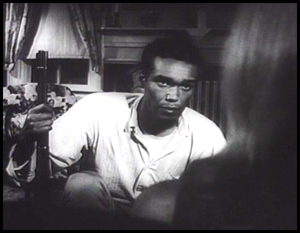
Where fun isn't just in the sweet meats.
By Tim Hartin
STARTING "STUFF"
Characters start the game with two items of "Stuff." The "Stuff" can be anything a player may want, as long as it is approved by the Referee. Some common pieces of "Stuff" are a large wrench, pistol, axe, molotov cocktail, etc.
Assign one of the following values to each of the character's two items of "Stuff": d6 and a d10. A character may not have more than four items of "Stuff" at anytime. The character may have as many normal items as they can carry.

eg. The player decides to give his character a d6 Machete and a d10 Shotgun. Another player decides to give her character a d10 Chainsaw and a d6 Old Service Revolver.
Most weapons do a d4 die roll for damage. If a player assigns a weapon to his "Stuff" then that weapon will do damage as per its "Stuff" die value. Weapons with other die value will be found during the course of the game.
Armour reduces damage taken by the amount of its die code.
e.g. A character wearing a heavy leather jacket is attacked by a Zombie. The Zombie bites for 1d6 damage while the jacket offers 1d6 protection. Should the zombie do 4 points of damage and the player rolls a 5 for his armour ? he takes no damage from the zombie.
The "Stuff" can also include some sort of medicine or first aid kits. In this case, the die value is how many Hit Points that can be healed while using this "Stuff". Examples include, First Aid Kit, Antibiotics, Tenser Bandages, etc.
ADVANCEMENT
As the characters scavenge for survival, they may come across many useful items. This can range from weapons to medical supplies (perhaps they add +1 to Health rolls vs sickness and/or zombie infection) to food to fuel.
Characters also gain experience for every zombie killed equal to that zombie's HPs. These experience points may be spent to raise an Primary Ability die value. To raise such a value costs 50 times the new Primary Ability.
e.g. A player wants to increase his character's d4 Personality to d6. It will cost him 300 XPs.
A player may also spend 50 XPs to increase his character's HPs by 1 point, or his character's MV by 1 point.
RESOLUTION MECHANIC
A TASK is any attempt at an activity that is neither instantly achievable or impossible. All TASKS are rated depending on their difficulty and require a number to be equalled or surpased for success. The numbers are detailed below:
| Easy | 2 |
| Normal | 4 |
| Hard | 6 |
| Very hard | 8 |
| Nigh Impossible | 10 |
SURVIVAL TASKS: Used when attempting tasks such as listening, sneaking, searching, determining another's motivation or trustworthiness, and combat.
HEALTH TASKS: Used for resisting poisons, extreme fatigue, and infections (such as Zombie Infection). It is also used for physical activities such as climbing, jumping, swimming and lifting heavy weights.
INTELLECT TASKS: Used for deciphering codes and puzzles, jerry-rigging/repairing technology, and understanding additional languages.
PERSONA TASKS: Used for bribing, befriending, bullying or seducing others. Personal rolls work only on the living (no affect on Zombies).
SURPRISE TASK
Zombies have a way of popping out of nowhere and surprising characters when they least expect it. In situations where there may be an unknown zombie(s) lurking about, the referee may roll a SURPRISE TASK. Using the character's SURVIVAL die value, the referee rolls against a difficulty number based on the Zombie's strength/type (Weak = 2, Average = 4, Strong = 6, Unique = 8). Should the character fail the roll, they are surprised and the zombie gets a free action.
e.g. Two characters are searching a gas station for supplies. Unknown to them, there is a zombie behind the counter. The referee rules that the Average strength zombie is an Average TASK to notice and rolls for the characters. Character B succeeds and watches as a zombie jumps out from behind the counter and charges towards Character A (who failed his Surprise TASK).
INITIATIVE TASK
After surprise has been checked, the next stage is initiative. Players roll their SURVIVAL die to see who goes first. Highest number gets first action. Use the zombies' Bite die value for its initiative. The referee may decide to roll for the opponents one by one, or in groups, or on mass as one unit - referee's call.
TASK MODIFIERS
Sometimes a TASK will be effected by the circumstances in which it is attempted. If this is to the character?s benefit, it is referred to as 1 die higher.
e.g. A d8 is rolled instead of a d6, a d10 is rolled instead of a d8 etc.
If this is to the character's detriment it is referred to as 1 die lower.
e.g. A d6 is rolled instead of a d8, a d8 is rolled instead of a d10 etc.
Should this result in a die lower than d4 the character may not attempt that TASK roll. Should it result in a die higher than d12 the roll is attempted at d14. For a d14 simply roll a d12. Take any odd roll as is but add 2 to any even roll.
Above a d14 is d16 and d18. These are handled exactly as d14 except that at a 4 and 6 is added to even rolls respectively.
Modifiers stack with a higher and lower die modifiers cancelling each other out.





Zombie Squad RPG and logo were created by Tim Hartin. The Zombie Squad RPG and logo are covered by a Creative Commons Attribution-Noncommercial-Share Alike 2.5 Canada License.

